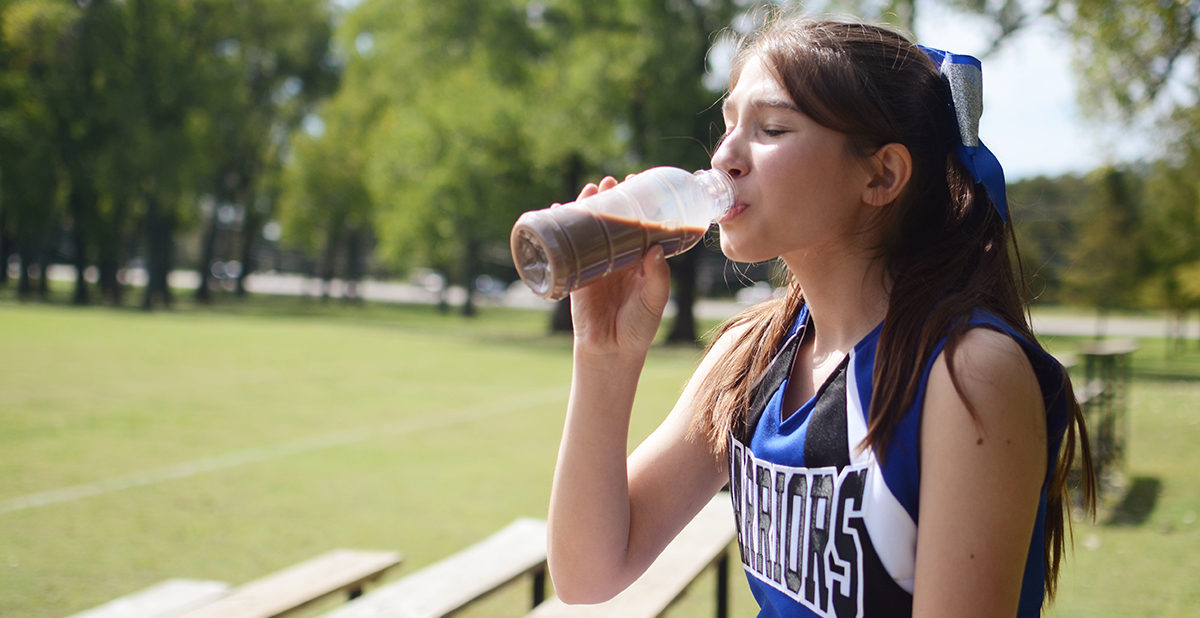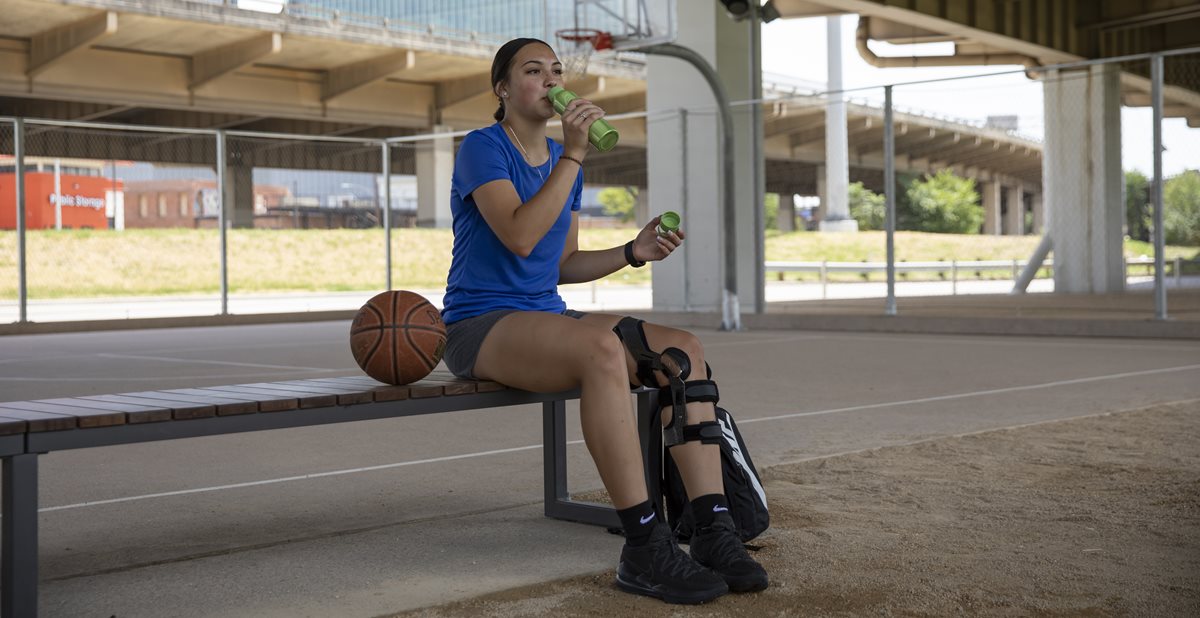
Jun 26, 2020 / Sports Medicine
Stress Fractures in Young Female Athletes: How Nutrition Plays a Role
Many athletes with injuries seem to have overlapping nutritional concerns. In particular, gymnasts, dancers, soccer players, cross country runners and track & field athletes are being treated for stress fractures. For some, it’s a second or third stress fracture within a year. These reoccurring stress fractures often are a sign of under-fueling in the young athlete. This is when they are not consuming the optimal caloric intake for the energy they are burning with exercise and sport.
A handful of the female athletes also report that in the midst of their intense training and competition schedule, they have stopped having regular periods. This is concern for young females. Loss of the menstrual cycle is a sign that the athlete has an energy deficit where she expends more calories than she is eating and drinking. This can lead to hormonal, growth and development issues that can be long lasting and needs to be addressed as soon as possible. Not only does this have general health implications, but it can set the athlete up for overuse related injuries, decreased performance and even time loss from sports.
Female Athlete Triad
Though they rarely occur together, these inter-related conditions: 1) low energy availability, 2) bone loss and 3) menstrual disturbances are called female athlete triad. Low energy availability, or not having enough calories to carry out the demands of the athlete's sport is the main cause of this. Here are common questions addressed in a nutrition consultation for a young athlete experiencing these and other medical conditions:
Nutrition counseling is an important role in recovery and injury prevention, especially when athletes have had injuries that are linked to energy deficiencies. Young athletes should learn to fuel their bodies for sports and activities so that they are performing at their best and avoid preventable injuries.
Taylor Morrison, M.S., R.D., CSSD, L.D., meets with our patients and offers a customized plan including:
A handful of the female athletes also report that in the midst of their intense training and competition schedule, they have stopped having regular periods. This is concern for young females. Loss of the menstrual cycle is a sign that the athlete has an energy deficit where she expends more calories than she is eating and drinking. This can lead to hormonal, growth and development issues that can be long lasting and needs to be addressed as soon as possible. Not only does this have general health implications, but it can set the athlete up for overuse related injuries, decreased performance and even time loss from sports.
Female Athlete Triad
Though they rarely occur together, these inter-related conditions: 1) low energy availability, 2) bone loss and 3) menstrual disturbances are called female athlete triad. Low energy availability, or not having enough calories to carry out the demands of the athlete's sport is the main cause of this. Here are common questions addressed in a nutrition consultation for a young athlete experiencing these and other medical conditions:
- Are they skipping any meals?
- Are they getting 3 out of the 5 food groups at each meal?
- How much water/fluid are they drinking?
- Are they getting adequate calcium and vitamin D for their age?
- Are they getting enough protein for their weight, sport and age and are they spacing this protein out adequately throughout the day?
- Do they appear to be getting adequate calories for their growth and sport needs?
Nutrition counseling is an important role in recovery and injury prevention, especially when athletes have had injuries that are linked to energy deficiencies. Young athletes should learn to fuel their bodies for sports and activities so that they are performing at their best and avoid preventable injuries.
Taylor Morrison, M.S., R.D., CSSD, L.D., meets with our patients and offers a customized plan including:
- Identifying fueling ways to increase calories or other nutrients needed.
- Discussing pre- and post-exercise snack and meal planning.
- Planning ways to optimize fluid intake.
- Providing education on specific topics based on the athlete’s needs and goals.



